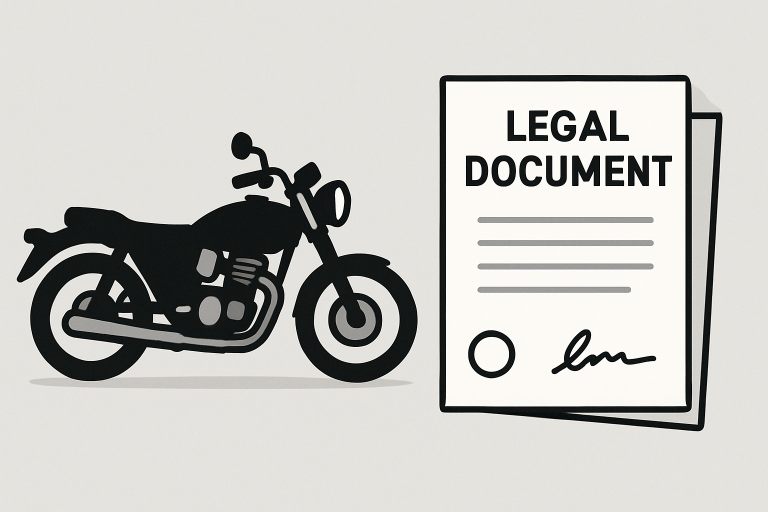Key Takeaways
- A motorcycle accident attorney provides critical guidance from the initial case review to potential appeals.
- Thorough evidence gathering and sharp negotiation skills are essential to maximizing your recovery.
- Professional legal support protects your rights in a complex, adversarial system.
Table of Contents
- Understanding the Role of a Motorcycle Accident Attorney
- Initial Consultation and Case Evaluation
- Comprehensive Investigation and Evidence Gathering
- Determining Liability and Legal Strategy
- Negotiating with Insurance Companies
- Filing a Lawsuit and Pre-Trial Procedures
- Trial Representation and Advocacy
- Post-Trial Actions and Appeals
- Conclusion
Understanding the Role of a Motorcycle Accident Attorney
Navigating the aftermath of a motorcycle accident can feel overwhelming for victims and their families. The intricate details of the law, combined with the physical and emotional toll of an accident, make it difficult for most people to secure fair compensation on their own. Working with a dedicated motorcycle accidents attorney ensures that your claim is managed with expert care, helping you understand your rights while handling communications and negotiations with insurers and other parties.
An experienced motorcycle accident attorney takes on a wide array of responsibilities. From collecting evidence and assessing the strengths of your claim to advocating for your interests in negotiations and at trial, their role is both broad and critical. By offering strategic advice and comprehensive support, attorneys empower victims to pursue the justice and compensation they are owed.
Your legal journey begins with an in-depth consultation. During this stage, the attorney analyzes police reports, photographs, witness statements, and your medical records. This evaluation helps establish whether you have a viable claim and what types of damages may be recoverable. If the legal landscape appears favorable, your attorney will outline realistic paths forward, preparing you for the road ahead.
Initial consultations also give accident victims an opportunity to ask questions and clarify expectations. With professional guidance, you can make an informed decision on whether to proceed and what challenges may arise.

Comprehensive Investigation and Evidence Gathering
Success in a motorcycle accident claim hinges on strong, objective evidence. Attorneys, such as those at Connelly Law, meticulously conduct investigations to uncover all relevant facts. This often involves:
- Examining police and accident reports for signs of driver error or violations
- Reviewing accident scene photos and available surveillance footage
- Gathering statements from witnesses and involving accident reconstruction specialists
- Analyzing medical evidence to connect injuries directly to the accident
A practical investigation doesn’t only clarify the facts—it thwarts attempts by insurers to minimize the value of your claim. Thorough evidence gathering also supports negotiations and strengthens your position in court, if needed.
Determining Liability and Legal Strategy
Identifying who is at fault involves careful legal and factual analysis. Your attorney will scrutinize traffic laws, driver behavior, and even vehicle maintenance records to build a compelling argument for the other party’s negligence. In some cases, multiple entities may share responsibility, such as vehicle manufacturers or government agencies that failed to maintain safe road conditions. According to a US News article on motorcycle accident injuries and damages, understanding the range of potential damages —including medical expenses, lost wages, and pain and suffering —is critical for evaluating a claim and ensuring victims receive full compensation. This strategic focus ensures that all possible sources of compensation are explored and that blame is assigned accurately based on the evidence. Your attorney will keep you informed at every step, preparing you for possible defenses by the opposing party.
Negotiating with Insurance Companies
Insurers are often motivated to settle claims for as little as possible, sometimes denying rightful compensation altogether. Seasoned motorcycle accident attorneys are skilled negotiators who use documented evidence, expert opinions, and legal expertise to demand fair settlements. This approach accounts for immediate losses—such as medical bills and property damage—as well as long-term impacts, including ongoing care and emotional distress.
Filing a Lawsuit and Pre-Trial Procedures
If settlement talks stall or the insurer refuses a reasonable offer, your attorney will file a lawsuit. The next phase involves pre-trial procedures, such as:
- Drafting and submitting a complaint outlining your case
- Exchanging evidence between parties through discovery
- Filing motions to resolve disputes or clarify issues before court proceedings
Each step is designed to refine the case for trial and ensure the legal arguments are supported by solid evidence and expert testimony.
Trial Representation and Advocacy
Should your claim proceed to court, your attorney acts as your advocate, managing everything from opening statements to cross-examining witnesses. Their courtroom expertise is essential in countering defense claims and persuading judges and juries of your losses. A well-argued trial presentation can be the deciding factor in securing the compensation you deserve.
Post-Trial Actions and Appeals
Securing a verdict is not always the end of the process. Your attorney will assist in collecting any damages awarded and may file post-trial motions or appeals if legal errors affected the outcome. The attorney’s guidance remains crucial to address any lingering legal issues and to ensure that justice is truly served.
Conclusion
The complex nature of motorcycle accident cases makes legal representation not just helpful, but often essential. A qualified attorney leverages extensive knowledge, negotiation skills, and courtroom experience to protect your interests and achieve the best possible outcome.



